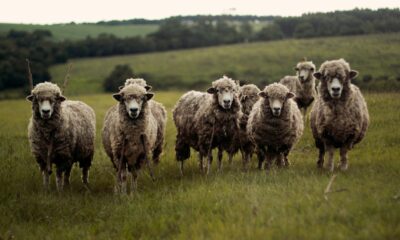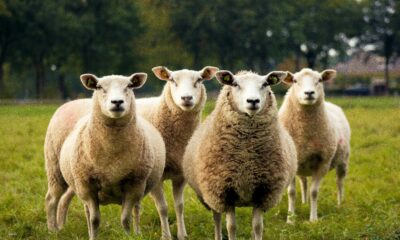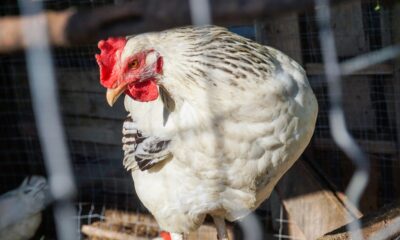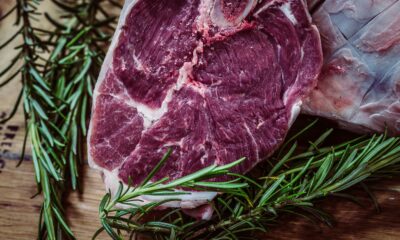1. Introduction to Heritage Turkey Breeds Turkey, a quintessential part of many festive meals, comes in various breeds, each with its own unique traits and characteristics. Among these, heritage turkey breeds stand out for their historical significance and genetic purity. 2. Importance of Heritage Turkey Breeds Historical Significance Heritage turkey breeds have been around for centuries, tracing their lineage back to the earliest days of turkey domestication. These breeds played a vital role in providing sustenance to early settlers and indigenous communities. Genetic Diversity In a world where industrial farming has led to a decline in genetic diversity among livestock, heritage turkey breeds offer a ray of hope. These breeds represent a reservoir of genetic traits that are valuable for breeding programs aimed at improving overall turkey resilience. 3. Characteristics of Heritage Turkey Breeds Size and Appearance Heritage turkey breeds are known for their majestic appearance, with vibrant plumage and sturdy builds. They often exhibit a range of colors, from rich browns to striking blues, adding to their visual appeal. Temperament Unlike their commercial counterparts, heritage turkey breeds tend to have more docile temperaments. They are well-suited to free-range environments, where they can exhibit natural behaviors such as foraging and roosting. 4. Popular Heritage Turkey Breeds Narragansett The Narragansett turkey, named after the Narragansett Bay in Rhode Island, is renowned for its excellent foraging abilities and flavorful meat. It boasts distinctive black and white plumage, making it a striking addition to any flock. Bourbon Red Originating from Kentucky, the Bourbon Red turkey is prized for its succulent, well-marbled meat. Its striking red plumage and gentle disposition make it a favorite among heritage breed enthusiasts. Standard Bronze The Standard Bronze turkey, one of the oldest heritage breeds in the United States, is known for its large size and robust flavor. Its bronze-colored feathers and regal stature harken back to a bygone era of traditional turkey farming. 5. Benefits of Raising Heritage Turkey Breeds Flavor and Texture of Meat One of the primary reasons for raising heritage turkey breeds is the superior flavor and texture of their meat. Compared to commercially raised turkeys, heritage breeds offer a richer, more nuanced taste that is prized by chefs and home cooks alike. Sustainable Farming Practices Heritage turkey breeds thrive in pasture-based systems, where they can graze on natural vegetation and insects. This not only improves the quality of their meat but also promotes sustainable farming practices by reducing reliance on feed additives and antibiotics. 6. Challenges of Raising Heritage Turkey Breeds Longer Growth Period Unlike their commercial counterparts, heritage turkey breeds typically take longer to reach market weight. This extended growth period can pose challenges for farmers looking to maximize efficiency and profitability. Limited Availability Due to their lower growth rates and specialized breeding requirements, heritage turkey breeds are not as readily available as commercial varieties. This limited availability can make it challenging for consumers to access these unique breeds. 7. How to Raise Heritage Turkey Breeds Housing and Space Requirements When raising heritage turkey breeds, it’s essential to provide ample space for foraging and exercise. A well-ventilated coop or shelter is necessary to protect the birds from the elements while allowing them to exhibit natural behaviors. Feeding and Care Heritage turkey breeds thrive on a diet of high-quality feed supplemented with fresh greens and protein-rich treats. Regular health checks and preventive care are crucial for maintaining the well-being of the flock. 8. Preservation Efforts for Heritage Turkey Breeds Organizations and Initiatives Several organizations and initiatives are dedicated to preserving and promoting heritage turkey breeds. These include breed registries, educational programs, and breeding cooperatives aimed at safeguarding these valuable genetic resources. Importance of Conservation Preserving heritage turkey breeds is not only essential for maintaining genetic diversity but also for safeguarding cultural heritage. By supporting conservation efforts, individuals can play a vital role in ensuring these breeds continue to thrive for future generations. 9. Conclusion Heritage turkey breeds offer a glimpse into the past while providing sustainable solutions for the future of poultry farming. With their rich history, unique characteristics, and flavorful meat, these breeds are a valuable asset to both farmers and consumers alike.

 ENTERTAINMENT8 months ago
ENTERTAINMENT8 months ago
 ENTERTAINMENT1 month ago
ENTERTAINMENT1 month ago
 Livestock1 year ago
Livestock1 year ago
 Poultry1 year ago
Poultry1 year ago
 Livestock1 year ago
Livestock1 year ago
 Poultry1 year ago
Poultry1 year ago
 Livestock1 year ago
Livestock1 year ago
 Poultry1 year ago
Poultry1 year ago